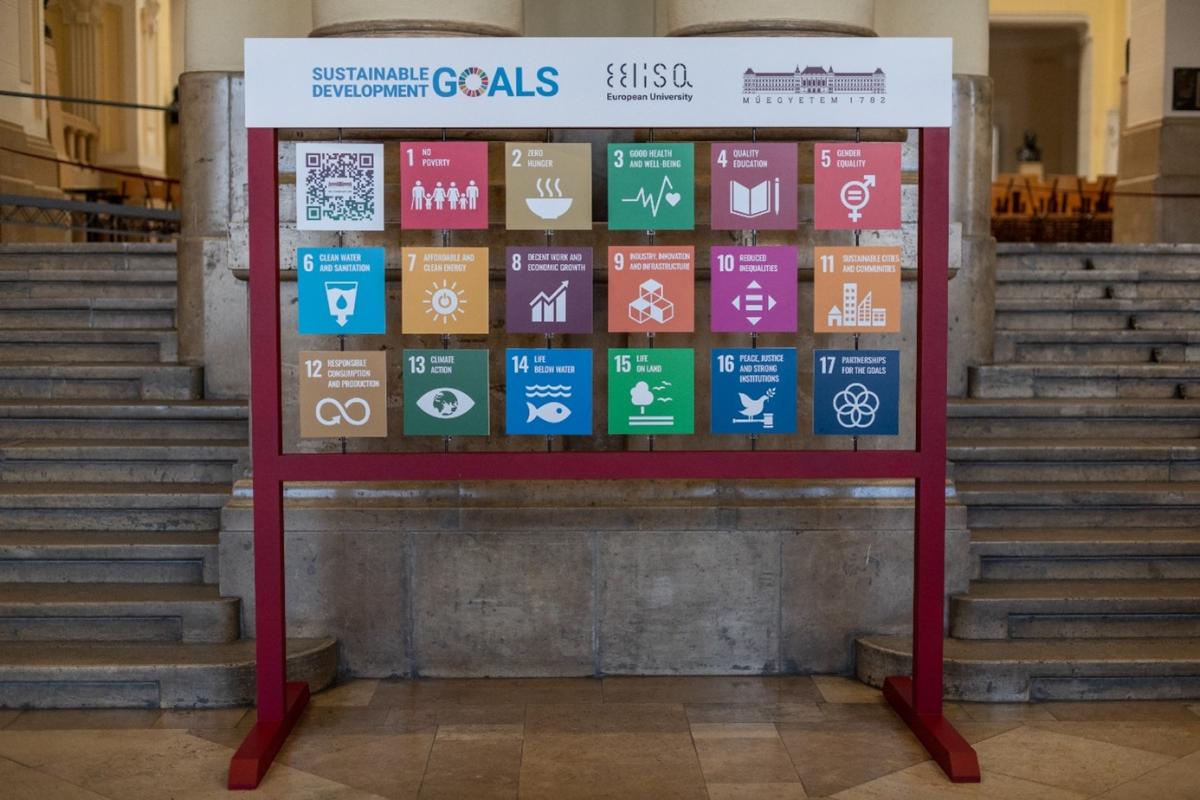News feed
17 goals for a better world – no. 2: zero hunger
2024. 03. 19.Launched last week, our series of articles entitled “Sustainable Tuesday(s)”, will take a look over 17 weeks at the 17 Sustainable Development Goals (SDGs) set by the UN to make the world a better place.
The term SDG stands for the 17 Sustainable Development Goals established by world leaders at the 2015 UN summit to set new directions for global development. In a series of articles called “Sustainable Tuesday(s”, starting today, we will take a look at the 17 Sustainable Development Goals (SDGs) over 17 weeks and show what BME is doing to achieve them, within its own means. You can check out these development goals in a playful way with the help of boards placed at the entrances of the 3 busiest buildings (E, K, Q) on the BME campus. For more information on this topic, you can join the BME GreenHub Facebook group and visit BME’s main website to access our BME for Sustainability platform
An important element of the Zero Hunger sustainability goal is to develop sustainable food production systems and ensure access to nutritious, healthy food.

For the practical implementation of this sustainability goal at the BME, dining facilities (2 canteens, 6 buffets, food and beverage vending machines) are available in several buildings across the university’s campus. The recently introduced BME card offers a 15% discount on the offering of canteens and buffets, among other things, but during the special offers of the Stoczek1 restaurant called Hungry Monday and Greedy Thursday even those who do not have a BME card can benefit from the 15% discount. By joining the platform Munch, the Stoczek1 canteen contributes to an environmentally, socially and economically sustainable food management by regularly selling its good quality leftover meals at the end of the day at a discount. Of course, there are also student initiatives on the subject, such as the Cooking Circles or Green Circles organised by students in their residence halls. The latter periodically tend a kitchen garden and herb garden, and grow their own vegetables.
1 research project, 6 publications, 11 student projects (4 theses, 2 PhD and 5 dissertation topics) and 3 subjects taught are among the activities of several BME faculties related to the topic of hunger eradication.
At the Department of Applied Biotechnology and Food Science of the Faculty of Chemical Technology and Biotechnology, teaching and researching nutrition, food quality and safety, and sustainable food production are all priority areas. More specifically, one of the main activities of the Cereal Science and Food Quality research group is the nutritional and technological qualification of cereals, the development of health-promoting foods, the value-added utilisation of accompanying and by-products, research on plant protein sources, and the management of certain food safety issues (food allergy, FODMAP).
The Environmental Microbiology and Biotechnology Research Group is exploring alternative options to fertilisation such as biochar for soil improvement (2024 Green TDK, 1st prize) or the use of other waste and waste products as soil additives. Also in the Department’s Fermentation Laboratory, work is being carried out on alternative crop protection methods to use microbial-based biocontrol agents to replace conventional pesticides.
Research at the Department of Environmental Economics and Sustainability of the Faculty of Economic and Social Sciences includes the drought-related vulnerability of domestic agriculture and the responsibility of the agricultural business sector in agricultural innovation and sustainable production methods.
Researchers at the Department of Sanitary and Environmental Engineering of the Faculty of Civil Engineering are studying the climatic and hydrological exposure, drought and inland water vulnerabilities of domestic and European cereal production. In an effort to reduce the water dependence of agriculture, model analyses are performed to estimate the effectiveness of water retention and nature-based solutions. The department is also involved in measuring emissions from agricultural sources (nutrients and pesticides, erosion), mapping propagation processes and modelling mitigation alternatives.
FV-KK (BME a Fenntarthatóságért Munkacsoport)
